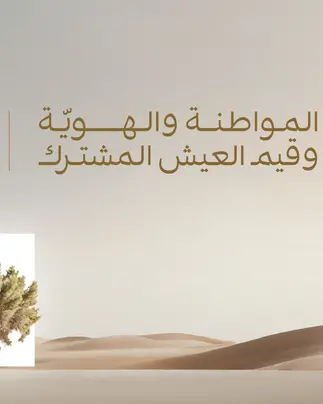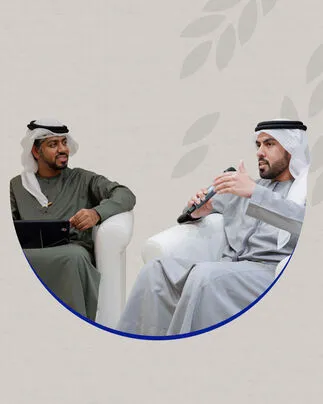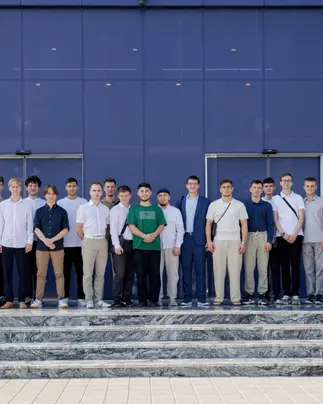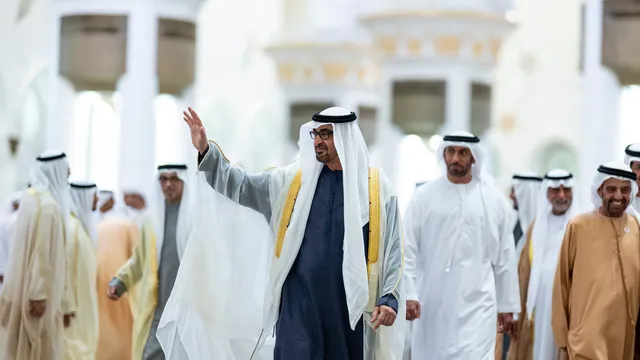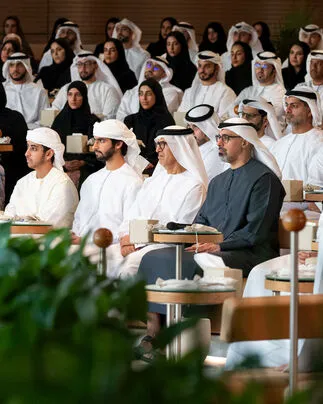His Excellency Shaykh Abdallah Bin Bayyah, Chairman of the Emirates Council for Sharia Fatwa and the Supreme Academic Council of the Mohamed Bin Zayed University for Humanities, President of the Abu Dhabi Forum for Peace, participated in the Pakistani Authority for Mercy to the Worlds conference, an initiative of Pakistani Prime Minister HE Imran Khan.
The event aims to provide decision-makers with insights and perspectives from eminent Islamic scholars to address pressing problems facing the Islamic world today within the general framework of Islamic ethics, and a focus on the life of the Noble Prophet (Peace and blessings be upon him).
Shaykh Bin Bayyah stressed that the imbalances of the moral system can be addressed by analysing it through including the five protected interests of the Shariah: religion, life, reason, offspring (family) and wealth (property).
He said that Islam offers us the most effective treatment, in the form of psychological and spiritual rehabilitation, modelled around the revival of religious sciences of Al-Ghazālī (d. 1111). The Shaykh argued that we need a renewal of morals and of faith in the heart. He said morals, like plants, wither If not watered. In this case, morals need to be watered by noble character.
From the Noble Qur’an and from the Prophetic biography, we can make medicinal compounds that bring peace to the soul. His Excellency said: "There is no doubt that this matter requires diligence and renewal. The truth is that we need a revival in all five protected interests for us to have total renewal."
His Excellency Bin Bayyah made it clear that every generation has its questions, and that the question of ethics is one of the most pressing of our time. Answering these questions and addressing such challenges is the duty of the present age. It falls upon the shoulders of rulers and religious scholars, who are the doctors of civilization. They must diagnose its disease and discover the cure. The Shaykh added, “Civilizations, as Nietzsche says, get sick and their physicians are the philosophers. Whereas we say the real physicians are the wise elders with insight and discerning minds and their physicians are the leaders who rule with compassion, mercy, and wisdom.”
Shaykh Bin Bayyah commended His Excellency the Prime Minister of Pakistan for the latter’s relentless efforts to serve humanity and for organizing this conference which brought together a number of scholars, academics, and religious leaders.
In addition, Shaykh Bin Bayyah indicated that renewal in the field of religion includes what is related to creedal faith, also known as ‘the greater jurisprudence,’ as well as what is related to religious injunctions, or ‘minor jurisprudence.’ In the greater jurisprudence, which are the articles of faith according to the celebrated phrase of Imām Abū Ḥanīfa, we are looking for an encompassing vision of the world that takes a position on all of its issues. This vision renews the greater jurisprudence by developing methods of argumentation and exploration that effectively utilize the capabilities made available by the latest developments in science.
One of the possible innovations in the greater jurisprudence is to deploy modern scientific discovery in service of proving creedal beliefs and presenting them in a sound fashion according to the standards of contemporary scientific thought that is appropriate to the understanding of the people of our age. We must not feel embarrassed of seeking the assistance of philosophy from more compatible schools of thought as well as camps that we would ordinarily term opposing schools of thought, though not necessarily an enemy, and these should be discussed in an atmosphere of camaraderie so that we can benefit from engaging and arguing with one another. We have to debate about beliefs using the tools of modern philosophy, as ʿAllama Iqbal said: the Ash’aris were the first to use weapons of Greek argument in their defense of the traditional opinions of the Sunnis; even though Iqbal tends to prefer the spiritual dimension of things elucidated by the likes of Imām Al-Ghazālī.
As for the lesser jurisprudence, its renewal lies in linking novel rulings to their overarching legal principles, which are a generous ocean of legal mechanisms and methods that serve to produce law appropriate to the times. This involves reconsidering the possibility of ijtihād through the principles of jurisprudence and the purposes of Sharia and actively utilize the instruments of jurisprudential effort to arrive at Sharia compliant solutions (ijtihad). These are found in the various schools of Islamic thought and include the juristic equity (istiḥsān) of the Ḥanafī school and the consideration of public interest (maṣāliḥ mursalah) of the Mālikī school. Regarding the other interests the Shaykh said the following:
The Interest of Life:
This is renewed by restoring the dignity of every human being and in revising what the Ḥanafīs term human protection. Every person's life is respected, and it is not permissible to transgress against it in any way.
The Interest of Reason:
Here, preserving reason does not only take place by preventing mind-altering substances, but also by ensuring the quality of minds are protected, that minds can develop, and by encouraging minds to creativity and innovation. We must encourage the great intellects that appear in the world, and in the Islamic world in particular, to fully develop in their potential. Religion requires minds to be pure, bright and able to absorb knowledge effectively.
The interest of Offspring and preservation of the Family:
Here, renewal lies in the issue of preserving lineages by encouraging family bonds and supporting the value of family life and protecting the family unit from disintegration.
The interest of Wealth and Property:
Renewal here lies through encouraging the creation of wealth and its proper distribution, and encouraging judicious spending, productivity and the creation of job opportunities.


